Meet the crew of Virgin Galactic's 5th commercial spaceflight launching on Nov. 2
You might recognize a couple of the crew members.
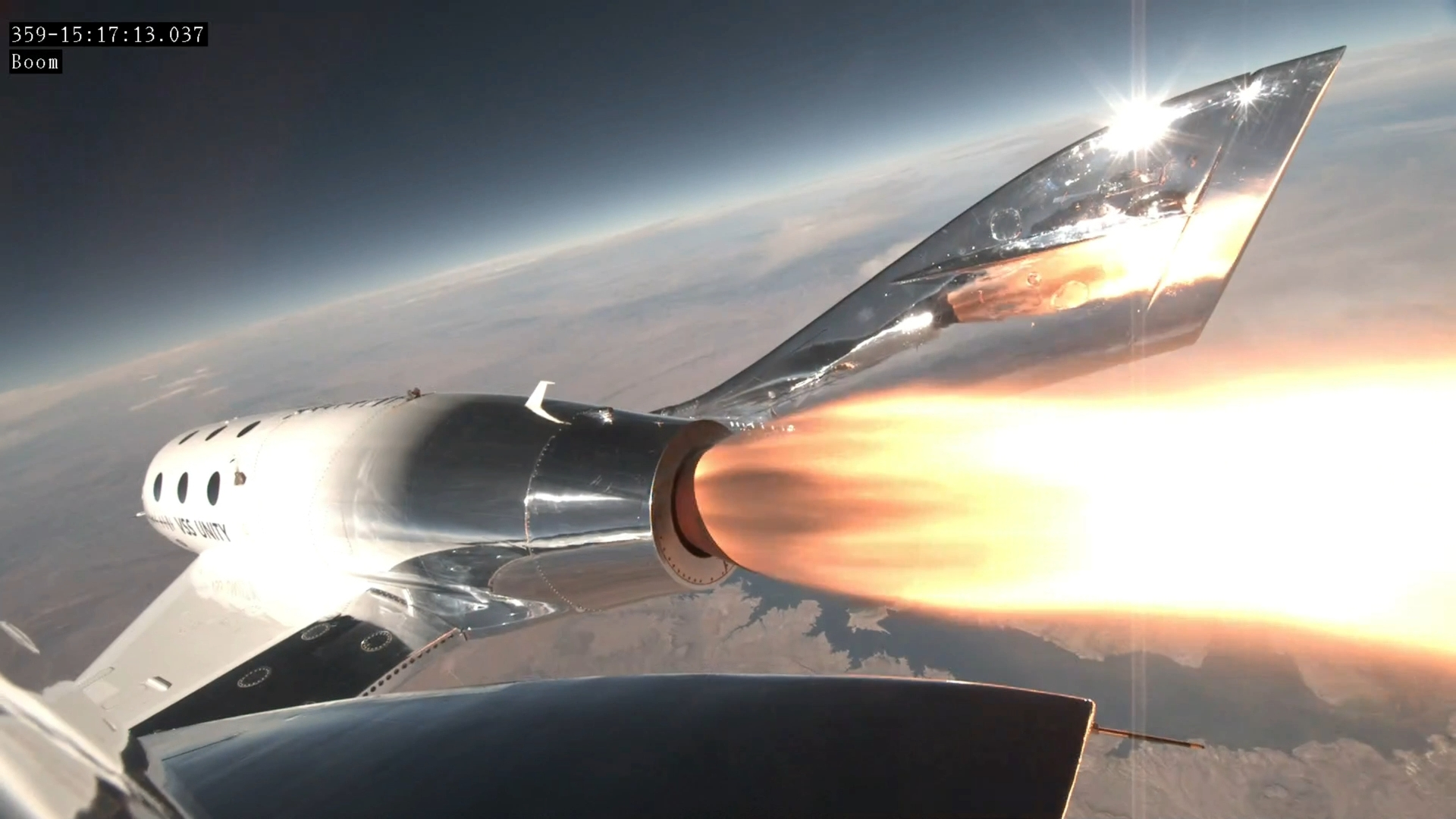
On pace with its once-a-month flight goal, Virgin Galactic is about to embark on its fifth commercial mission, and its final flight of 2023.
Galactic 05 is scheduled to lift off this Thursday (Nov. 2) and will carry three passengers on a brief trip to suborbital space. The trio will fly aboard Virgin Galactic's SpaceShipTwo space plane, named VSS Unity, and experience several minutes of weightlessness while they perform a quick round of research experiments and gaze at the wonders of Earth from a vantage point few have reached.
The Virgin Galactic crew accompanying them include one of the group's astronaut instructors, responsible for preparing the three for their flight, as well as two pilots in the VSS Unity cockpit.
Related: What is Virgin Galactic, and what do they do?
The mission will take off from Spaceport America in New Mexico, a state-owned launch facility that hosts Virgin Galactic as its main tenant. VSS Unity and its crew will be brought to altitude by SpaceShipTwo's carrier aircraft, the double-cockpit-designed VMS Eve.
VMS Eve carries VSS Unity into the air, with the vehicle hanging from the plane's mid-wing. Once the pair reaches about 50,000 feet (15,000 meters), Eve releases Unity , which drops and fires its single rocket motor to continue on a suborbital trajectory.
As Virgin Galactic begins to regularly check names off its list of early seat reservation-holders, the company also seems to be allowing those customers the option of anonymity. In the weeks leading up to flights over the past few months, Virgin Galactic has released passenger information at an inconsistent rate. For this flight, the company has released two of the three names for Galactic 05, listing the third passenger only as "Astronaut 022 — Private Astronaut — Franco-Italian nationality."
Get the Space.com Newsletter
Breaking space news, the latest updates on rocket launches, skywatching events and more!
The names of astronauts 020 and 021, however, are far from a mystery, and have already earned recognition in the spaceflight industry.
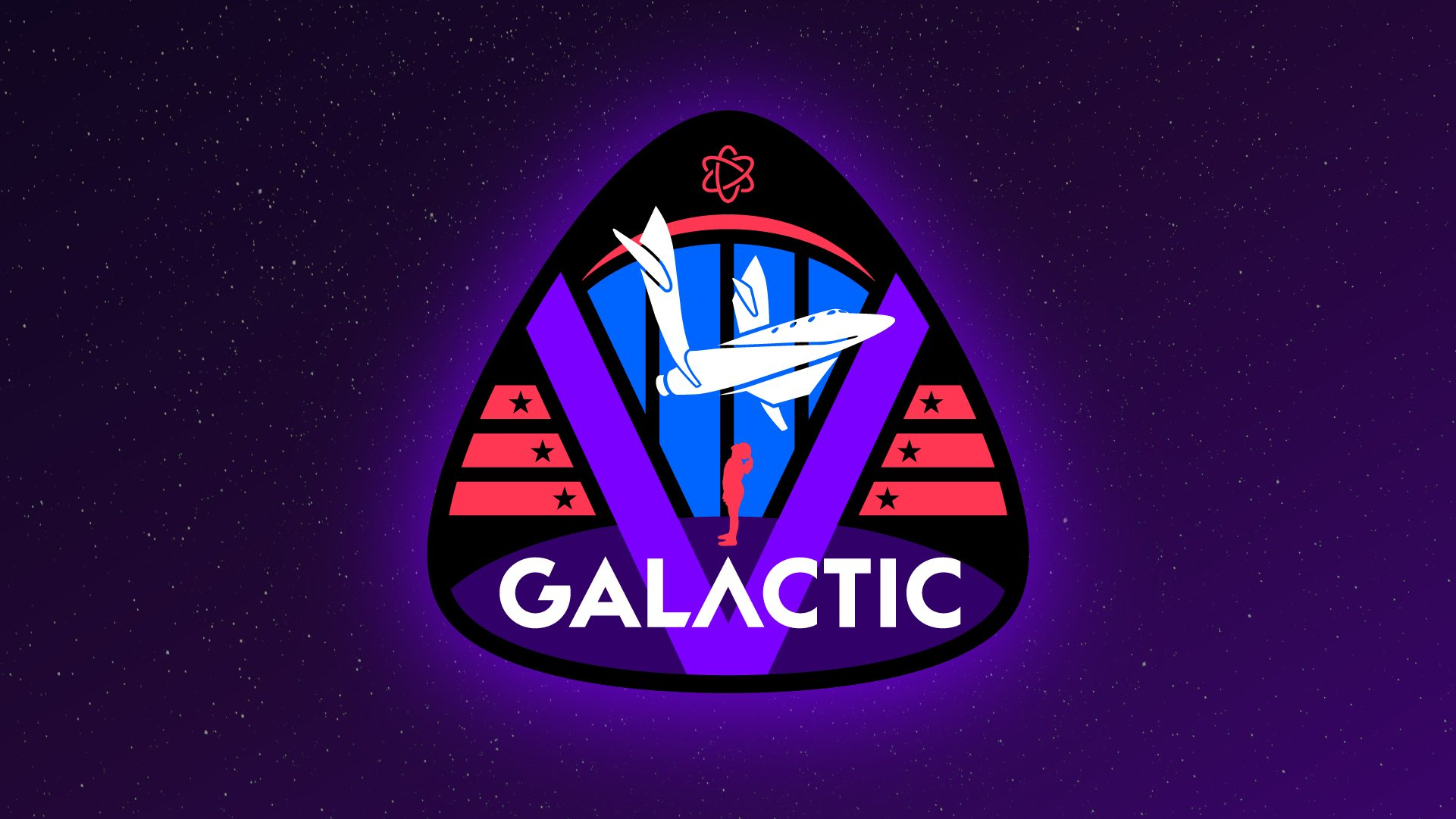
Alan Stern 020
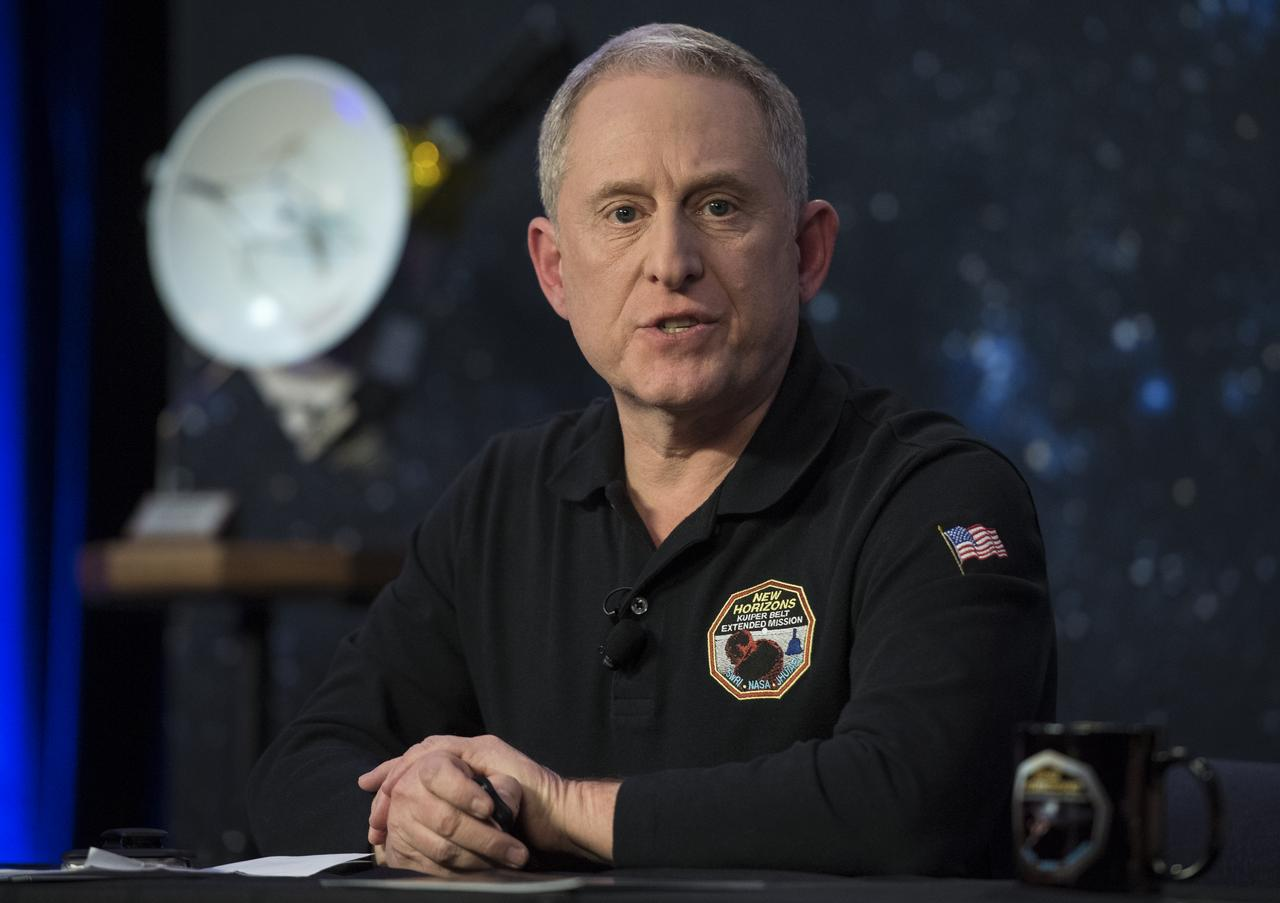
Alan Stern is a planetary scientist most known for his role as principal investigator of NASA's New Horizons mission, which flew by Pluto in 2015 and is currently exploring the Kuiper Belt, the ring of icy bodies beyond Neptune.
Stern's work with NASA spans dozens of missions over more than two decades, and he currently serves as associate vice president of the Space Science Division at the Southwest Research Institute (SwRI). His Virgin Galactic seat is sponsored by SwRI and is part of NASA's Flight Opportunities program, which aims to advance spaceflight technologies through suborbital research aboard commercial missions.
This will be Stern's first time flying to space, but it won't be the first far-off place his research has taken him. In addition to being an accomplished aircraft pilot, Stern has traveled to the depths of the North Atlantic Ocean, where he explored the wreck of the Titanic; he has journeyed to the South Pole; and he has flown numerous high altitude and parabolic flights, all in the pursuit of science.
His ride aboard VSS Unity will serve a similar goal. For Stern, Galactic 05 is, in part, a training mission for NASA-funded research he will perform on a future suborbital mission. Stern will be wearing a biomedical harness to monitor his vital signs throughout his flight, and he will participate in a series of risk-reduction operations and astronomical observations to evaluate the suborbital spacecraft environment to optimize those activities.
Related: What's the difference between orbital and suborbital spaceflight?
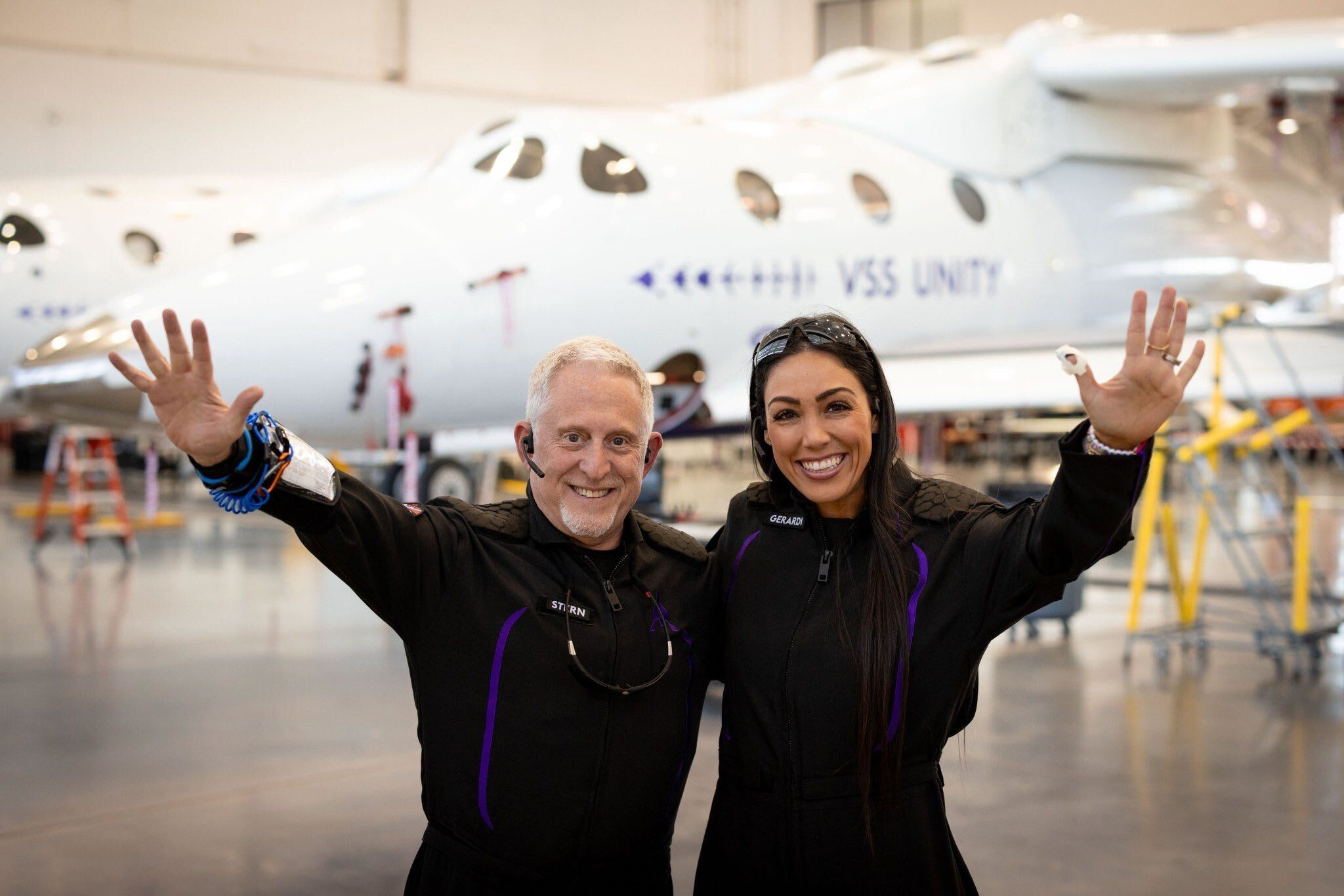
Great training day yesterday, centered on procedures runs in the Unity spaceship trainer & in Unity itself, resulting in a number of checklist mods. Here's my @Spaceport_NM @virgingalactic badge, and us flight experimenters (Kellie Gerardi, me) with our mission patches! @SwRI pic.twitter.com/TctAMmHNTrOctober 30, 2023
Kellie Gerardi 021
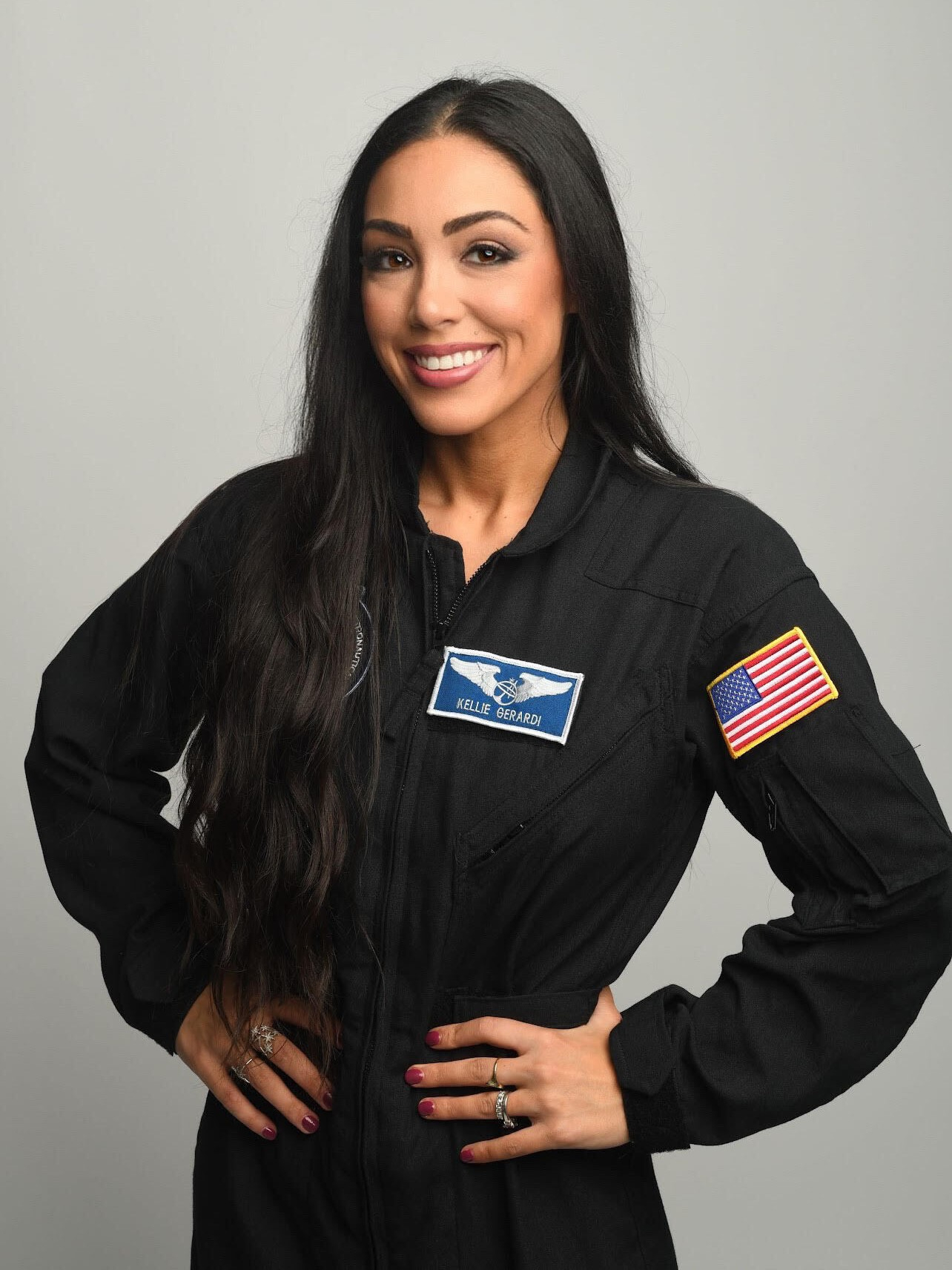
Kellie Gerardi is a missions operations lead at Palantir Technologies, a payload specialist at the International Institute for Astronautical Sciences (IIAS) and an accomplished author and space/STEM (science, technology, engineering and mathematics) communicator with a following in the hundreds of thousands.
Gerardi's research aboard Galactic 05 will continue investigations she has performed during parabolic flights on Earth, which create the experience of weightlessness for passengers for about 30 seconds at a time. Gerardi's flight is sponsored by the IIAS, and, like Stern's, the experiments she will perform are largely focused on collecting biometric data.
Attached directly to her skin, Gerardi will be wearing the first continuous glucose monitor to fly into space, which will passively monitor her blood glucose throughout the mission. Gerardi will also be wearing a biomonitoring device, called Astroskin, which will continuously track her vitals from takeoff to landing. The device has been worn before by astronauts aboard the International Space Station; however, Galactic 05 will mark its first use during launch and reentry procedures.
A third experiment Gerardi will perform involves fluidic behaviors in microgravity environments, which has wide implications for spaceflight technologies, from spacecraft plumbing to pharmaceutical production and medical treatment procedures.
Colin Bennet 003
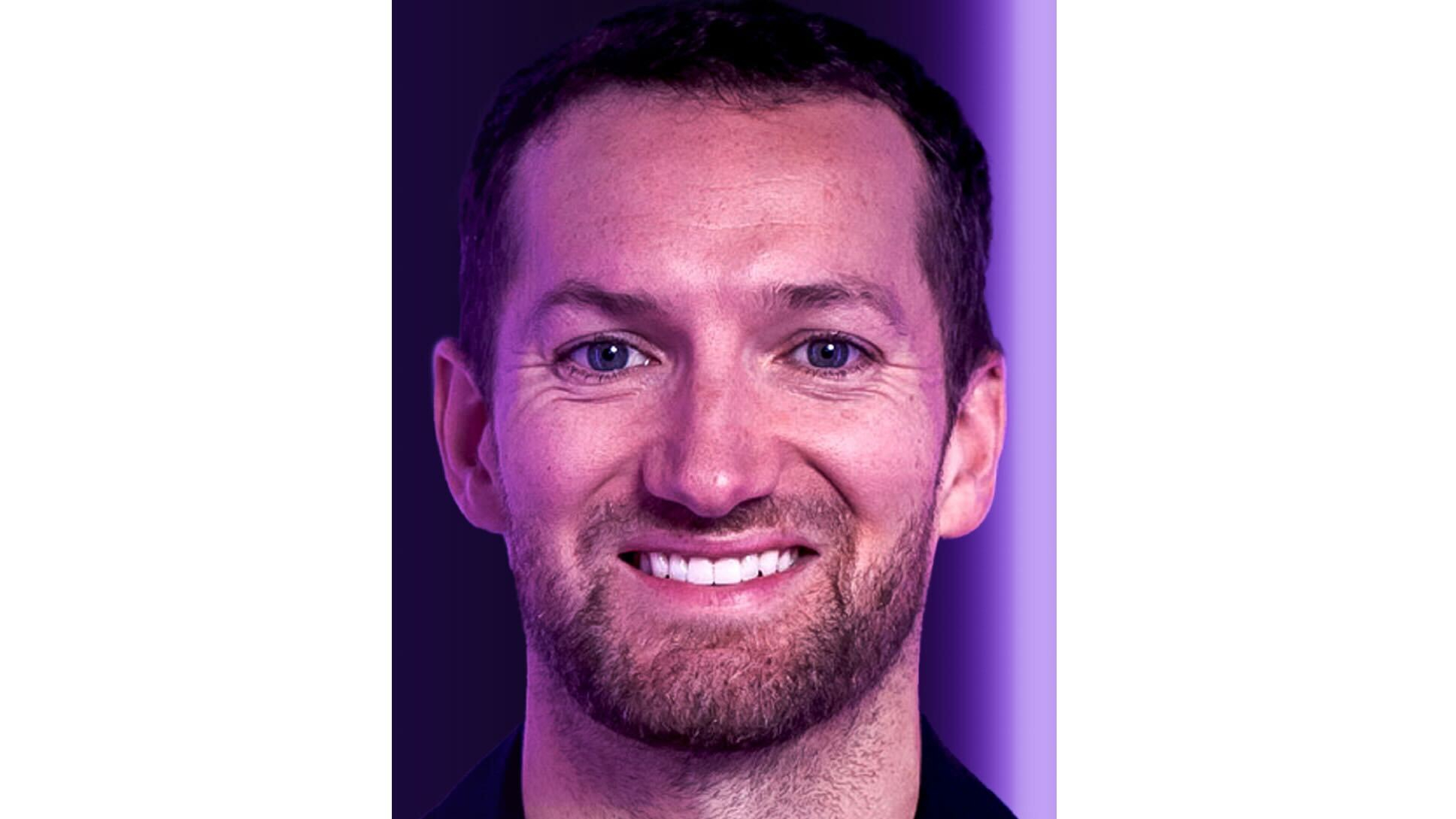
Colin Bennett is Galactic 05's astronaut instructor and has been responsible for preparing the crew for the flight ahead. He is Virgin Galactic's Astronaut 003, and flew with Virgin founder Richard Branson on VSS Unity's final test flight in July 2021. In one of his many roles at Virgin Galactic over the last 15 years, Bennett also served as astronaut instructor for Galactic 01, another research flight.
VSS Unity pilots
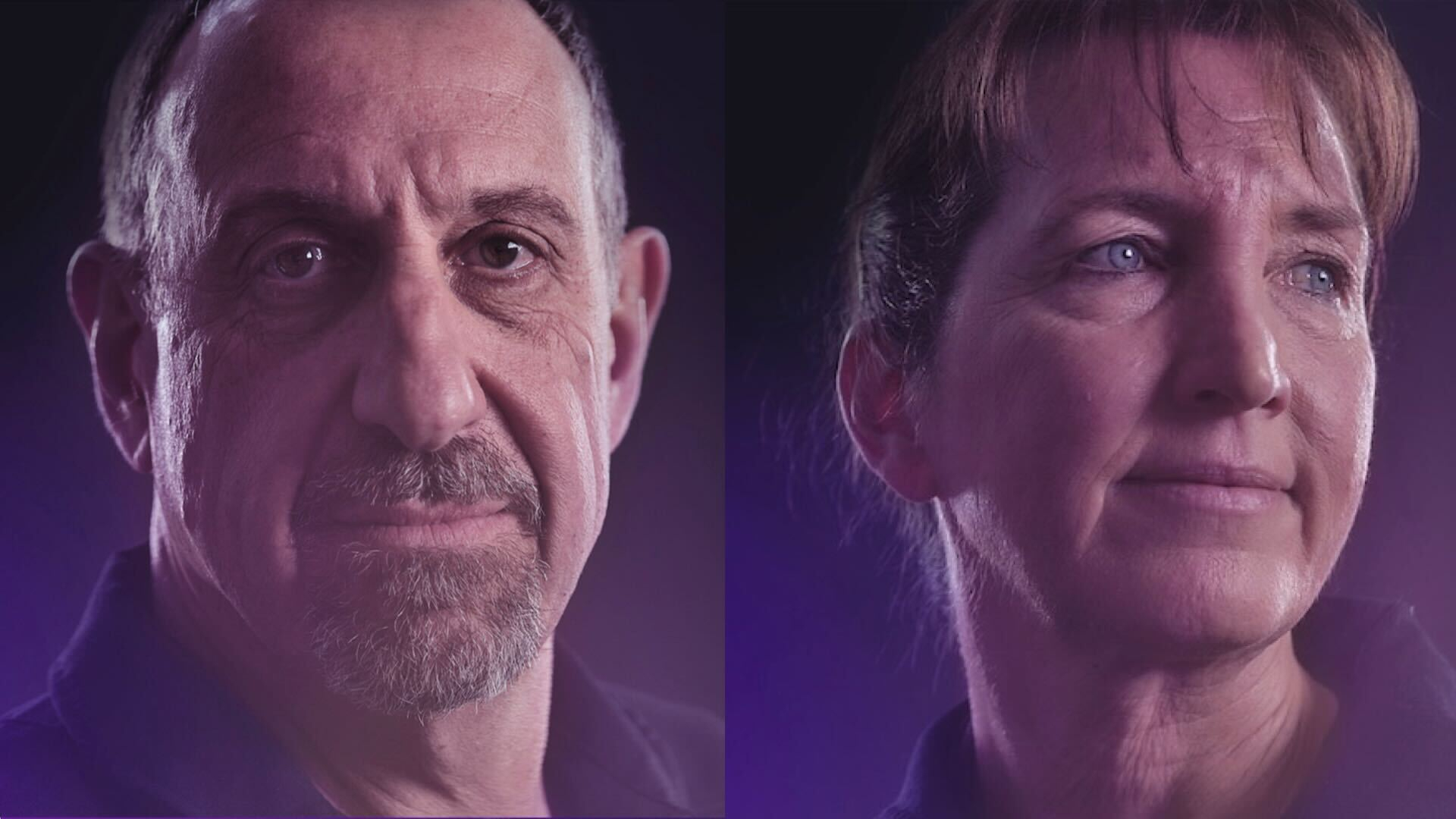
Inside VSS Unity's cockpit will be Commander Mike "Sooch" Masucci and Pilot Kelly Latimer. Both Masucci and Latimer possess long flight resumes.
Masucci served as a lieutenant colonel in the United States Air Force before joining Virgin Galactic. He sat at the helm of VSS Unity during the Galactic 01 mission and was one two VMS Eve pilots on Galactic 02.
Latimer worked at NASA's Armstrong Flight Research Center for many years and logged thousands of hours as a research pilot. After joining Virgin, Latimer piloted the Cosmic Girl carrier plane during Virgin Orbit's first successful satellite launch in 2021. (Virgin Orbit, a sister company of Virgin Galactic, filed for bankruptcy in April of this year.)
VMS Eve pilots
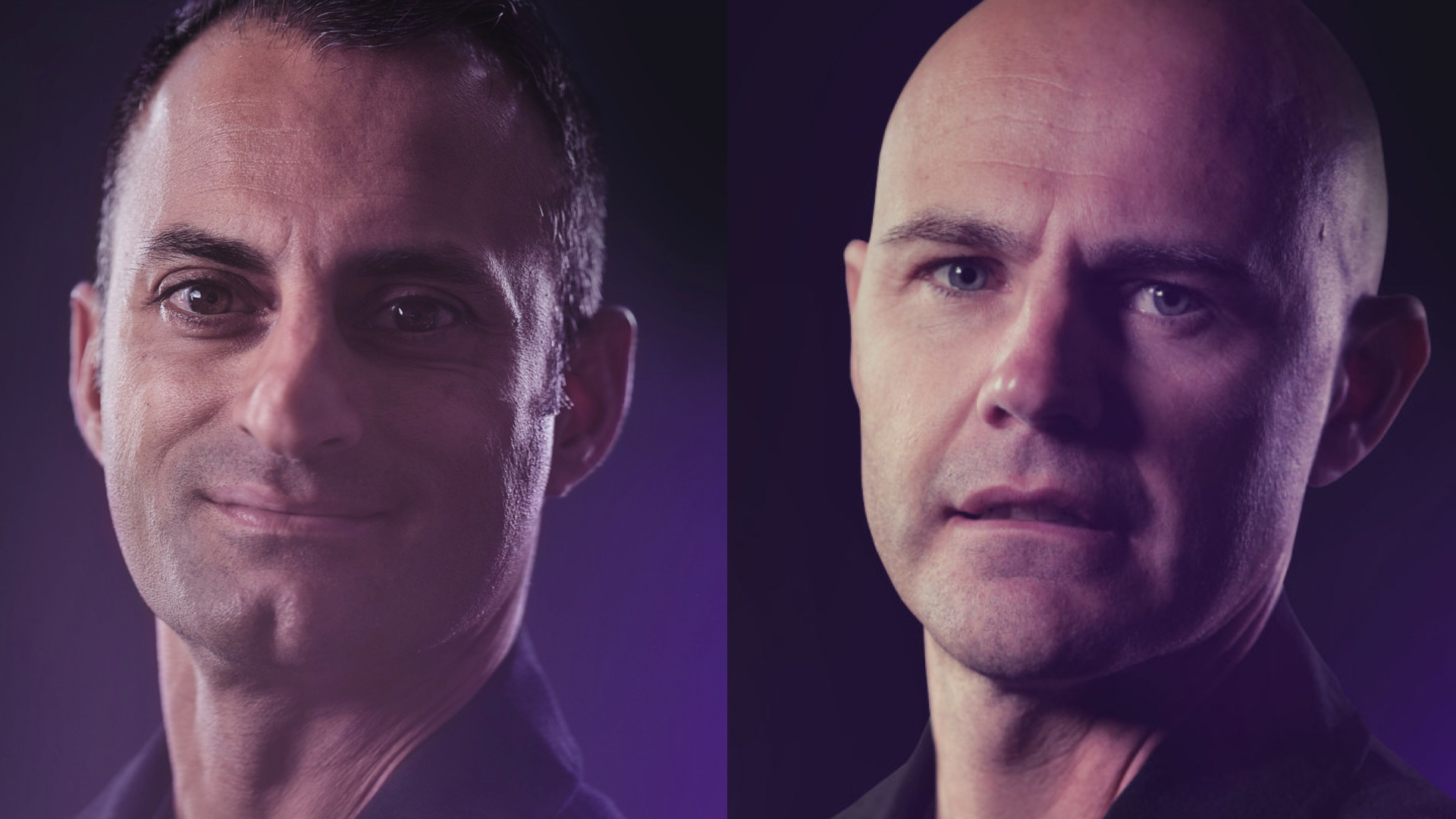
Manning the dual cockpits of the VMS Eve carrier aircraft for Galactic 05 will be Commander Jameel Janjua and Pilot Andy Edgell.
Janjua got his start at the Massachusetts Institute of Technology (MIT), where he earned a masters degree in aeronautics and astronautics. From there, he joined the Canadian Air Force and worked his way up to the rank of major while gaining extensive experience as a test pilot before his retirement from service. Now, Janjua is gaining extensive experience as a pilot for VMS Eve. Including Galactic 05, Janjua has piloted Eve for four of Virgin's five commercial missions.
Andy Edgell has been an experimental test pilot since 1999, and served in the British Royal Air Force flying F-35s and Harriers, according to Virgin Galactic's website. Edgell joined Virgin Galactic this year, and this will be his first time in the cockpit during one of the company's commercial flights.
Janjua and Edgell will pilot VMS Eve for a landing on the runway back at Spaceport America following the plane's release and return of VSS Unity. This mission itself will not be livestreamed, as has become the norm for Virgin Galactic's commercial flights, but updates are expected via the company's social media channels.
According to a recent Virgin Galactic mission update, Galactic 05 will be the company's last launch until 2024. This one-month pause will "allow time for routine, planned annual vehicle inspections before re-commencing with standard pre-flight readiness procedures," the update reads.
Galactic 06 is currently scheduled for January 2024, and is expected to carry four private passengers.
Join our Space Forums to keep talking space on the latest missions, night sky and more! And if you have a news tip, correction or comment, let us know at: community@space.com.
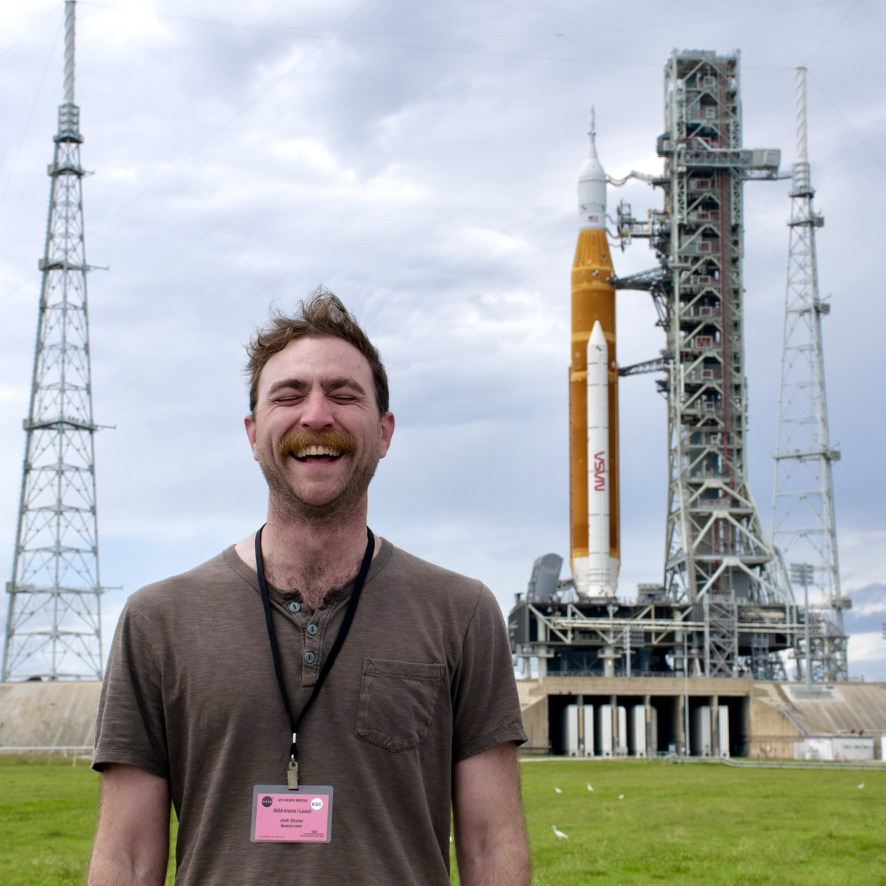
Josh Dinner is the Staff Writer for Spaceflight at Space.com. He is a writer and photographer with a passion for science and space exploration, and has been working the space beat since 2016. Josh has covered the evolution of NASA's commercial spaceflight partnerships and crewed missions from the Space Coast, as well as NASA science missions and more. He also enjoys building 1:144-scale model rockets and human-flown spacecraft. Find some of Josh's launch photography on Instagram and his website, and follow him on X, where he mostly posts in haiku.









